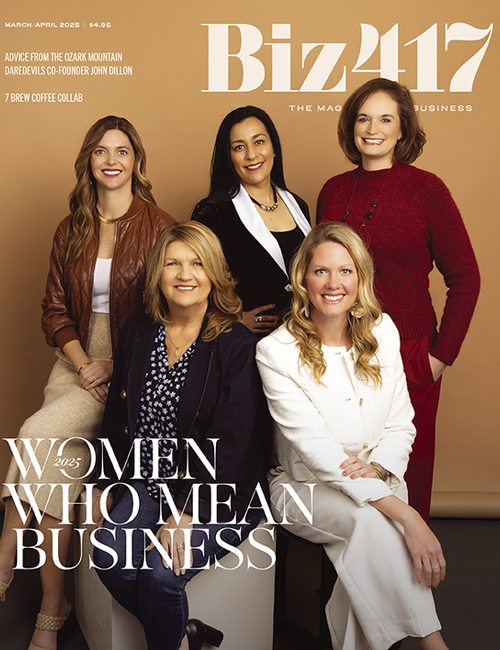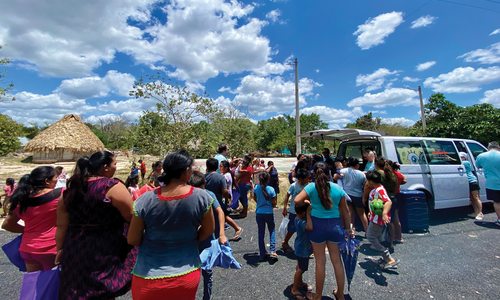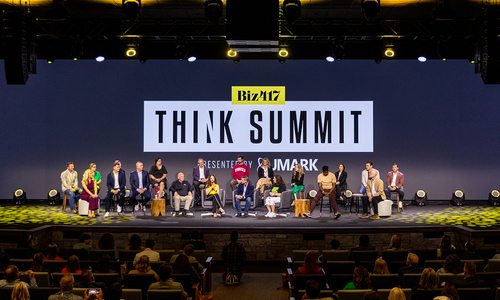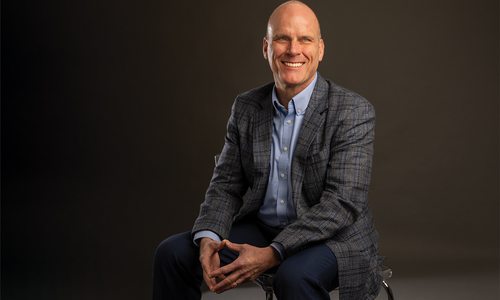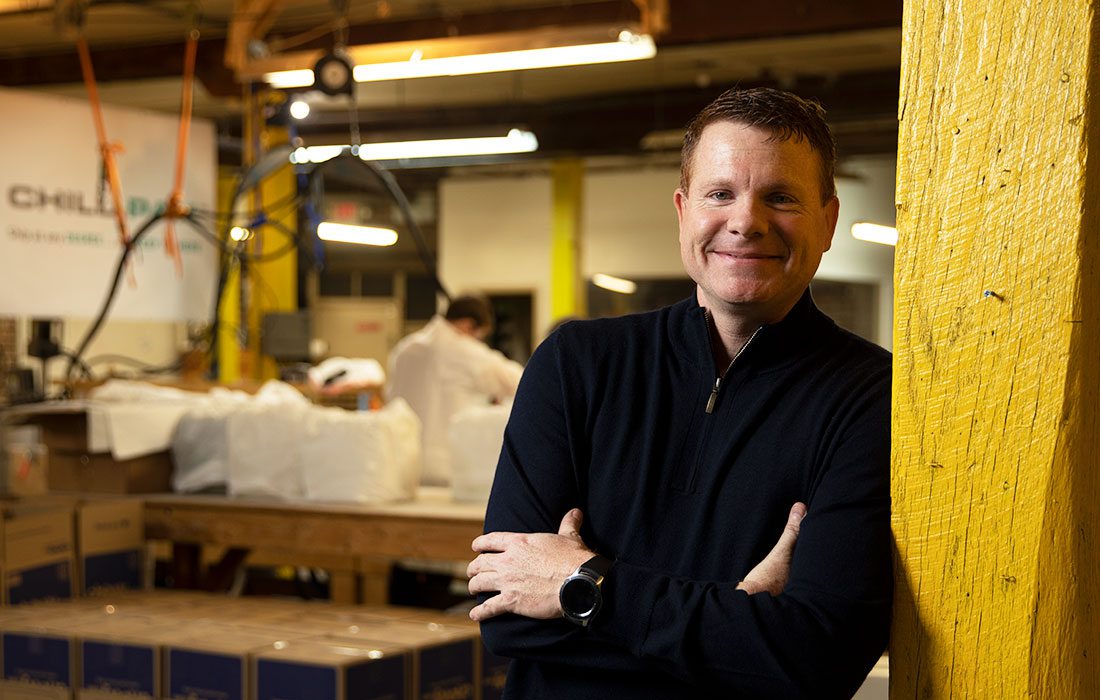
Culture
Chill-Pak: A Culture of Inclusion
Chill-Pak is not just a company that accepts differences, it’s a company that celebrates them. Company president Stephen Foster has a specific vision of what inclusion looks like for the packaging company.
By Jamie Thomas
Mar 2020

“You wouldn’t know I had a disability if I walked into the room until I open my mouth, and you hear that I have a speech impediment. Immediately the context of the conversation changes.”— Stephen Foster, president of Chill-Pak
"There’s a stigma attached to people with disabilities,” says Stephen Foster, president of Chill-Pak since 2017. “The stigma is difficult to overcome.” Foster, who was born with profound hearing loss, is on a mission to break down that stigma. Chill-Pak is a manufacturer and total solutions provider of sustainable, temperature-assurance packaging for a broad range of industries including pharmaceuticals, biologics and chemicals to name a few. To Foster, disabled workers represent an untapped workforce—one that Chill-Pak embraces. Currently, people with disabilities make up 23% of Chill-Pak’s workforce, and the company’s goal is to hit 40% by 2021. “We’ve grown significantly since 2017,” Foster says. To hit that 40% goal, Chill-Pak works with Preferred Family Healthcare through its Preferred Employment Services program. The program connects jobseekers with disabilities to potential employers. “I’m a strong believer in the will of the individual,” Foster says. “Give them the right opportunity and the right resources, and they’ll be successful.”
Foster, a graduate of Bellarmine University and the University of Louisville with a double major in computer science and business, spent many years in the information technology industry working with startups. Foster’s focus on startups was partly inspired by obstacles he faced in the corporate world. “With some of the larger companies, it was frustrating because of the glass ceiling for people with disabilities,” he says. “You wouldn’t know I had a disability if I walked into the room until I open my mouth, and you hear that I have a speech impediment. Immediately the context of the conversation changes.” This has ignited Foster’s passion for hiring disabled employees at Chill-Pak.
This passion is exemplified in a story Foster tells about one employee—Brian Gold, a deaf janitor with whom Foster struck up a conversation in sign language. “I went up to him and started signing and his jaw dropped,” Foster says. “I don’t think he expected that. I found out he loved working on cars, so my next question was, ‘What the hell are you doing sweeping floors?’” Foster quickly moved Gold onto the labor line, where he became one of the most productive employees at Chill-Pak. “He has that fire in his belly because he’s got something to prove,” Foster says. “Giving him that opportunity gives me goosebumps because that’s really what I’m after.” For Brian Gold, the move showed Foster really cared. “At other jobs I had, I was very isolated,” Gold says. “There was no communication; no one bothered to make an effort. They expected me to speech-read. That’s just not effective at all.”
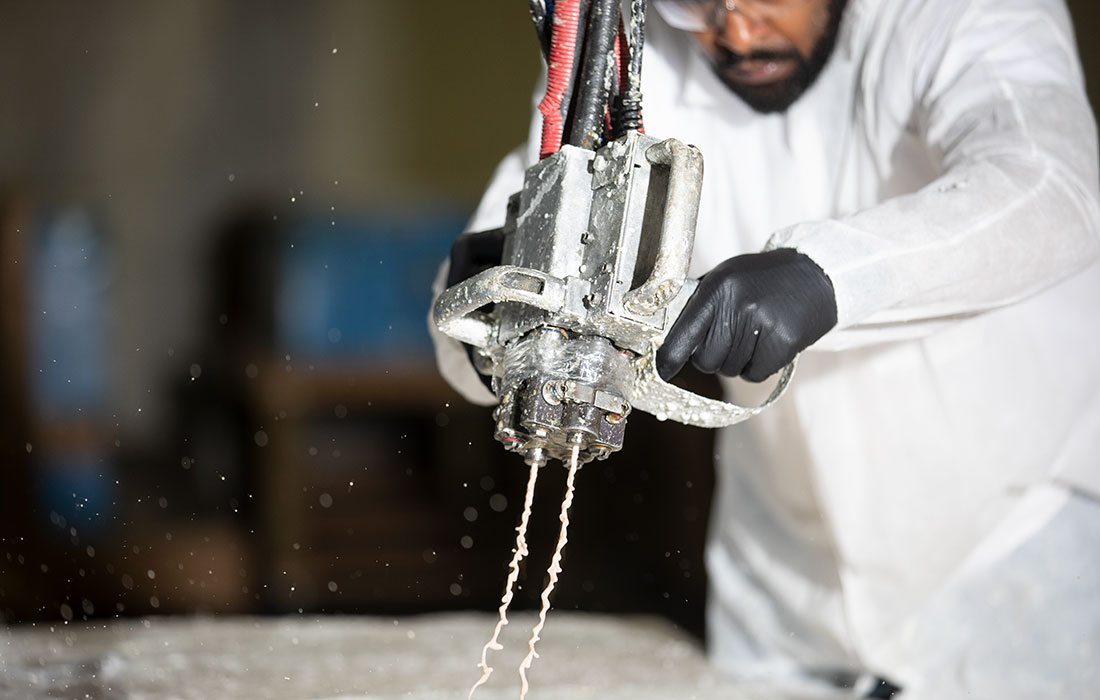
Foster plans to expand the initiative as the company grows and increase Chill-Pak’s employment opportunities, along with the services it offers. “My goal is to change the conversation about people with disabilities,” he says.
Foster's inspiration has come from an array of experiences. One of the most significant was his conversations with Randy Lewis, author of No Greatness Without Goodness and former vice president of operations at Walgreens. Lewis has a son with autism, and his book focuses on their relationship—something that spoke to Foster. “In that book he talked about what kept him up at night,” Foster says. “Here’s one of the most powerful people in the supply chain industry, and that’s not what scared him. What scared him was, ‘Is my son going to be okay after I pass?’ That's an incredibly powerful statement.” Foster got in touch with Lewis, and they quickly developed a friendship. “One thing that stood out was when he said: ‘You have a platform that I did not have. You’re the eyes, ears and the face of the company. You can push that conversation in any direction you want, whereas I reported to someone else.’ It puts me in a very unique position.”
In addition to his own experiences in the working world, Foster’s wife and children also have the same profound hearing loss. This has given him a unique perspective, especially when it comes to the way perceptions of deafness and disabilities in general have changed. “When I was a child and I went to mainstream schools, there were not a lot of people educated about the disability of deafness,” Foster says. “A lot of people didn’t understand; it was almost taboo. You don’t have that same mentality in people today. I think people are more open to learning more. I think it’s because it’s more public, resources are available.” Foster’s family all have cochlear implants but are adept at switching between speaking and using sign language. “That adaptability is something that I didn’t have the opportunity to do when I was younger,” Foster says. “They understand there are multiple resources available, so their integration into the hearing world has been a lot easier.”

